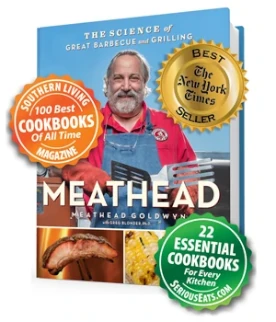Welcome from Georgia!
I'm leaning toward something other than the water pan. If I understand correctly, the stall happens when evaporation form the surface matches the heat transfer into the air via convective cooling and the phase change of moisture to vapor. Dry air at the same temp as moist air will accept more/faster evaporation from the surface - meaning the smoker without the humidity-adding water pan should reach equilibrium sooner and power through the stall faster.
With that said, I'm with tbob4 - try it again with the pans reversed and let us know! The worst that happens is you have to eat more brisket... 😁😁
I'm leaning toward something other than the water pan. If I understand correctly, the stall happens when evaporation form the surface matches the heat transfer into the air via convective cooling and the phase change of moisture to vapor. Dry air at the same temp as moist air will accept more/faster evaporation from the surface - meaning the smoker without the humidity-adding water pan should reach equilibrium sooner and power through the stall faster.
With that said, I'm with tbob4 - try it again with the pans reversed and let us know! The worst that happens is you have to eat more brisket... 😁😁









Comment